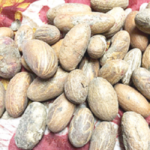President, Forum of Nigerian Toxicologists, Professor Olatunde Farombi, in this interview with Sade Oguntola, says that daily, Nigerians are exposed to toxins in their food, air and different sources which are dangerous to good health.
WHAT are toxins and can they kill immediately as poisons do?
Toxins, from the name, refer to toxic substances that are alien to the body system. As such, the body treats them as strange and reacts negatively to them when taken inadvertently or advertently. They can damage internal organs of the body, including the blood, and affect the body’s functioning. This can result in different illnesses, including kidney and liver diseases as well as cancer if eventually not properly attended to by the individual. Toxins are very common and present in our environment. In many instances, these toxins accumulate over time in the body as people get exposed to them. Bioaccumulation of toxic substances when excessively exposed to and inappropriate use of toxic chemicals can lead to problems as the person goes on in life.
Where are these toxins?
In many settings, toxic chemicals in industrial effluents may be deposited directly into the soil and water. In addition, toxic chemicals emanating from tanning operations, mining, and indiscriminate use of agricultural pesticides and herbicides, at levels or rates well over those tolerable to humans, may pose health risks. Also, it is recognised that inadvertent exposure occurs from eating food items contaminated with chemicals. Now, all toxins are poisons while all poisons are not toxins. In Nigeria, aflatoxins and fumonisin found in nearly all crops such as sorghum, maize and groundnuts are the most common toxins of economic and health importance. Other food products for which mycotoxin contamination has been reported in Nigeria are dried yam chips, tiger nuts, melon seeds and stored herbal plants.
Mycotoxin contamination of various foodstuffs and agricultural commodities is a major problem in the tropics and sub-tropics because the climatic conditions and agricultural and storage practices are conducive to fungal growth and toxin production. Also, polycyclic aromatic hydrocarbons, a form of toxin, can also be present in charcoal-grilled fish and meat. Polycyclic Aromatic Hydrocarbons (PAH) are a class of carcinogens formed when wood or charcoal is burned and deposited in the food being roasted. They have been classified as carcinogenic. Their presence in foods and feeds is inevitable and as such, humans and animals are exposed to them on a continuous basis, leading to a wide range of health complications. Particularly, aflatoxins B1 and fumonisins have been directly linked to cancers and deaths among humans and animals.
Of course, contamination and accumulation of toxins also can occur from indiscriminate use of pesticides, herbicides and insecticides. The pesticides get absorbed into plants and food substances like maize, fruits and vegetables. There are reports that farmers spray pesticides on cabbage to preserve it; some use sniper to preserve beans, while traders use chemicals to force ripe fruits and plantains. When individuals take in such substances, they are indirectly taking these toxic agents and they can easily accumulate in the body. Over time, they can have a deleterious effects on them.
Is it possible to identify such contaminated food items and how can individuals limit their risks from contaminated foods?
You cannot identify such contaminated food substances or crops because the toxin is already part of the food and it is not something that you can see with your naked eyes, except maybe those that research had reported as being contaminated. So, the toxins are consumed inadvertently. Individuals limit their risks from contaminated foods by being aware of some of these toxins and possibly being careful of the type of food substances they eat and where they go to buy their food items.If this fails, the only thing that could be done is to ensure that they take substances that can counteract some of the effects of these toxins in their bodies. Things like fruits and green leafy vegetables containing antioxidants that can help to detoxify the body and counter oxidative stress caused by excess free radicals and other toxins that increase the disease risk.
Antioxidants protect body cells against damage caused by molecules called free radicals that naturally occur due to the processes that take place inside the cells of the body. Research suggests that free radical damage plays a role in conditions such as dementia, heart disease, liver disease, asthma, and certain types of cancer. Nutraceuticals are substances that are derived from food substances and plant substances that have the ability to work against free radicals and ability to work against contaminants and toxins in the system. They are derived from food substances like tomatoes, onions, ginger, garlic and even foods like fish. They are able to prevent some of the diseases that can be caused by toxins, including cancers as well as heart, kidney and brain diseases. Currently, Nigeria’s level of awareness about toxins and their health implications is very low; that is why it is important that government agencies bring this to the awareness of the human population.
What are the common health implications of toxins in humans?
Exposure to toxins on a continuous basis can lead to a wide range of health complications. Death may result due to attack on body organ systems like kidneys, lungs, hearts, brain and the eyes. Also, toxins also cause infertility and erectile dysfunction. Infertility is an alarming epidemic affecting more couples than ever. Exposure to heavy metals, radiation, and toxic chemicals in some foods, drugs, and other products can impair male fertility by disrupting sperm formation, reducing sperm count and also affecting the quality of the sperm.
Are there laws in Nigeria that govern the levels of toxins individuals should be exposed to?
Now, the WHO has determined the permissible levels of these toxins in food levels and that is where the role of regulatory bodies, including the Standard Organization of Nigeria and NAFDAC, comes in. They have to regulate the number of toxicants that are present in food substances. For instance, bodies like Food and Drug Administration in the USA regulate the level of toxins in food substances in their country. Anything above a particular level, such food substances will not be allowed into the country and they will not allow human beings to take such foods.
Talking about food and toxins, it is a common practice for some individuals to buy tomatoes and pepper that are already going bad, What is your opinion on this practice?
That is not good; it is not acceptable. For instance, such tomatoes contain fungi which represent the whitish things that you will see on it. Such tomatoes-infected fungi can have a lot of deleterious effects on the body system. They contain fungi that produce aflatoxins, a toxin that may cause liver cancer. The WHO has noted that consuming the mycotoxins found in rotten tomatoes can lead to long-term effects such as immune deficiency and cancer. Boiling and frying do not help to remove the Aspergillus, the fungi it contains completely. Also, previously, the National Agency for Food and Drug Administration and Control (NAFDAC) warned Nigerians against the consumption of rotten tomatoes, to prevent cancer.
Are the toxins people take in a factor in the increasing incidence of cancers and other non-communicable diseases in Nigeria?
Of course, they have been linked with the incidence of non-communicable diseases such as cancer and cardiovascular disorders. This has a direct and indirect correlation. With increasing cases of cancer and other non-communicable diseases, individuals need to limit their exposure to cancer-causing agents and cultivate the habit of taking balanced nutrition and eating substances to ward off the negative effects of toxins they are exposed to daily.
WATCH TOP VIDEOS FROM NIGERIAN TRIBUNE TV
- Let’s Talk About SELF-AWARENESS
- Is Your Confidence Mistaken for Pride? Let’s talk about it
- Is Etiquette About Perfection…Or Just Not Being Rude?
- Top Psychologist Reveal 3 Signs You’re Struggling With Imposter Syndrome
- Do You Pick Up Work-Related Calls at Midnight or Never? Let’s Talk About Boundaries







